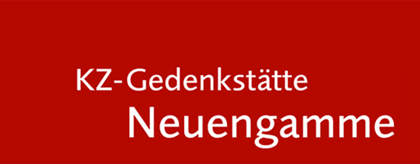
Projects over several days
These workshops for youth groups and school classes last three to five days. We encourage groups to talk to us ahead of time about what topics and activities they are most interested in. We offer the following workshops, but other topics can also be arranged with prior consultation:
Antisemitism and racism in the past and in the present
We take an in-depth look at the ideology of National Socialism as the basis for persecution and also at fundamental aspects of the history of Neuengamme Concentration Camp. Who was imprisoned there? What were the reasons for their detention at the camp besides racism and antisemitism? How did society deal with the history of Neuengamme Concentration Camp and its survivors after 1945? Even today, people are still marginalised and confronted with various forms of group-based enmity. We shed light on the continuities that exist to this day and the role that right-wing ideological elements play. We end by exploring the question of what we today can do about it.
Duration: 3 days of 5 to 7 hours each
Inclusive Project Week: Exclusion and Persecution in National Socialism
For inclusive groups (including classes from schools for children with special needs, welcome classes) we recommend longer formats to give participants the time they need. At the Neuengamme Concentration Camp Memorial, the situation experienced by prisoners is conveyed with the help of haptic objects; a good deal of time is also spent at individual stations throughout the grounds. Over the following days, some of which take place back at school as well as at other memorial sites in Hamburg, the focus is on a variety of topics, e.g. young people in forced labour, the murder of children at Bullenhuser Damm, the persecution of Sinti and Roma as well as the so-called ‘swing youth’.
We work with materials set out in plain language, film clips, music, and artistic resources. A detailed preliminary discussion is necessary.
Duration: 3-5 days
Project Days for Younger Pupils (Year 6/7)
Memorial educators accompany the group in an age-appropriate and sensitive way as they prepare for the memorial visit at school and during the following project day at the Neuengamme Concentration Camp Memorial. The pupils learn about the biographies of people who were imprisoned in Neuengamme concentration camp or its subcamps (these are also available in simple language) and receive information about the National Socialist regime and different groups of prisoners.
Duration: 2 days (Day 1: at school / Day 2: at the Neuengamme Concentration Camp Memorial)
Radio Project: Finding Your Own Voice
The Radio Workshop lasting several days begins with an exploration of the memorial site and a closer look at the history of the former concentration camp. Later on, participants are given an induction into audio editing and able to work on putting a podcast together. Once each of the small groups has decided what topic they want to cover in their podcast, the scripts and concepts are drawn up. They then use mp3 recording devices or their own mobile phones to compile the audio material to be edited into a podcast later on. The podcast itself can then be broadcast on non-commercial radio or accessed via the Memorial’s homepage or that of the school.
Duration: at least 4 days of 5 to 7 hours each
Decisions: Film Workshop
Participants of this project week will be learning more about the Memorial by exploring different locations and their history. The main focus will be on the decisions available to, and made by, prisoners, SS-men and citizens who lived near the camp. Based on their impressions, thoughts and emotions during the workshop, participants will design a storyboard for making a stop motion film.
Art as a Means of Expression and Survival
This workshop focuses on artworks by prisoners in Neuengamme concentration camp. What perspectives of historical events can we find in the drawings and paintings? How do the prisoners portray daily life in the camp? How did they see their fellow prisoners, or the SS? In order to broaden our perspective, we will also visit other monuments and memorial sites in the city of Hamburg and discuss how events in the camp were conveyed in artworks after the war ended in 1945.
Decisions: Stopmotion Film Workshop
Participants of this project week will be learning more about the Memorial by exploring different locations and their history. The main focus will be on the decisions available to, and made by, prisoners, SS-men and citizens who lived near the camp. Based on their impressions, thoughts and emotions during the workshop, participants will design a storyboard for making a stop motion film.
Study day or multi-day project "Women in concentration camps"
The format deals with both female prisoners and perpetrators. Based on biographies, the focus is on life before, during and after the war. One focus of the study day is on women-specific persecution and female survival strategies. On the topic of women wardens, questions will be raised about motivations, scope for action and legal reappraisal.
In the two-day version of the project, the Neuengamme Concentration Camp Memorial as well as the Poppenbüttel Plattenhaus Memorial will be visited.

